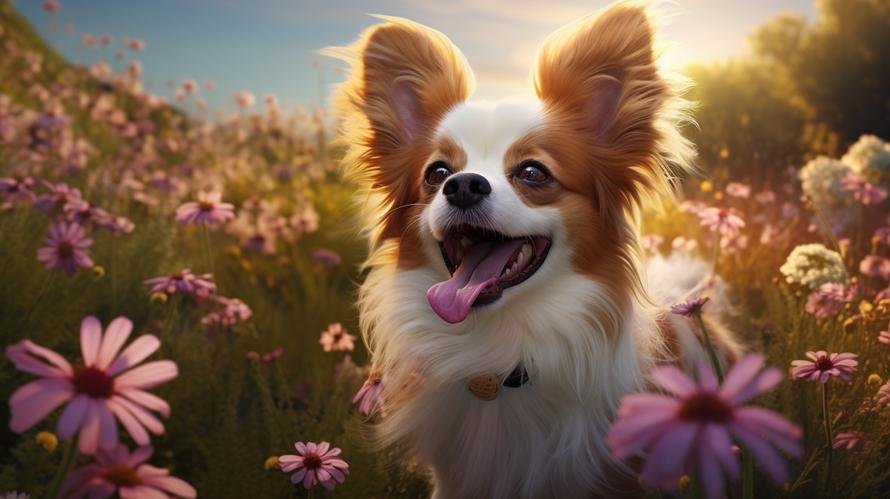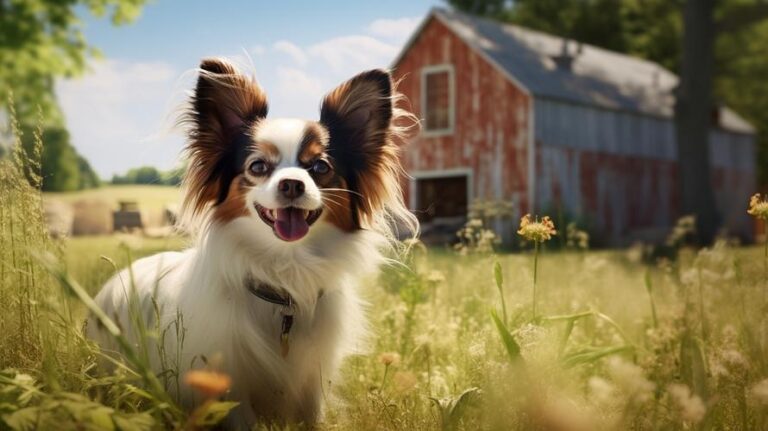While many people might think of the Papillon merely as a lap dog, perfect for cuddling and short walks in the park, nothing could be further from reality. Papillons, often mistaken for their demure appearance, are actually distant relatives of the more robust and lively spaniels. Dive a little deeper into their history, and you’ll find that far from being delicate, they are incredibly active, intelligent, and well, quite bold indeed.
Papillons, with their fringed, butterfly-like ears, can be the center of attention wherever they go. Their sparkling eyes, gleaming coats, and petite bodies exude an air of elegance and charm. But does this adorable small-sized dog hide an aggressive temperament? The truth might surprise you as we delve into the world of this unique and enchanting breed, exploring their personality traits, demeanor, and typical behaviors.
The quick answer is, Papillons are usually not aggressive by nature. Each breed carries certain genetic predispositions in terms of behavior, but environment, training, and socialization also play pivotal roles in molding a dog’s personality. A well-socialized and properly trained Papillon is likely to be a delightful, sociable, and friendly pet. But like any breed, if they are poorly socialized or mistreated, they can exhibit signs of fear-based aggression.
What makes the Papillon stand out is their high intelligence. They are known to be one of the smartest among small dog breeds, and this intelligence can sometimes be mistaken for stubbornness or even aggression. While it’s true their smartness can sometimes lead to a bit of wilfulness, a dog-savvy owner can channel this towards positive behaviors with consistent training.
Often, what people might see as ‘aggression’ in a Papillon – growling, barking, or acting ‘touchy’ – could rather be fear or territorial behavior. Papillons are known to be deeply loyal and protective. This robust sense of loyalty can sometimes translate to a passion for protecting their territory, including their food, toys, or their favorite human. This could make them wary of strangers or new dogs, potentially triggering growling or barking. Proper socialization and training can help mitigate such behaviors by teaching them what is and isn’t a threat.
The Papillon’s size is another factor that can contribute to misunderstandings about their temperament. Standing at around 8-11 inches tall and weighing between 7 to 10 pounds, they are undeniably small in stature. This small size can sometimes cause them to act defensively when feeling threatened by larger dogs or mischievous toddlers who may not understand the concept of personal space. These defense mechanisms can sometimes be misleadingly labeled as ‘aggressive’.
Papillons are also filled with energy and enthusiasm, which require outlets for their vivacious spirit. They love to be engaged, whether it’s with playtime, training sessions, or daily walks. Without these outlets, their pent-up energy can resort to destructive behaviors such as chewing on furniture or excessive barking, which can be perceived as aggression.
Now that we’ve established that Papillons aren’t inherently aggressive, it’s essential to highlight the best practices on raising a well-behaved and happy Papillon. Early socialization is key. It’s vital to introduce them to various environments, humans, and other animals gently and gradually. Consistent, positive reinforcement-based training right from puppyhood can also ensure they grow up to be obedient, friendly, and sociable dogs.
Caring for a Papillon’s needs—physical exercise, mental stimulation, and emotional bonding—can also go a long way in preventing any potential behavioral issues. Regular playtimes, stimulating puzzle toys, long walks, and ample cuddle sessions with the family can work wonders for a Papillon’s well-being.
In conclusion, Papillons are not inherently aggressive dogs. They possess a wealth of intelligence, energy, and loyalty that, if nurtured correctly, can make them wonderfully ideal pets. With proper socialization, training, and care, a Papillon can be a well-mannered, loving, and entertaining companion that will bring joy into your life like no other. Remember, embracing their unique personality traits and understanding their needs are the pivot to cultivating a bond full of tail wags, ‘butterfly’ kisses, and a doggone good time!



